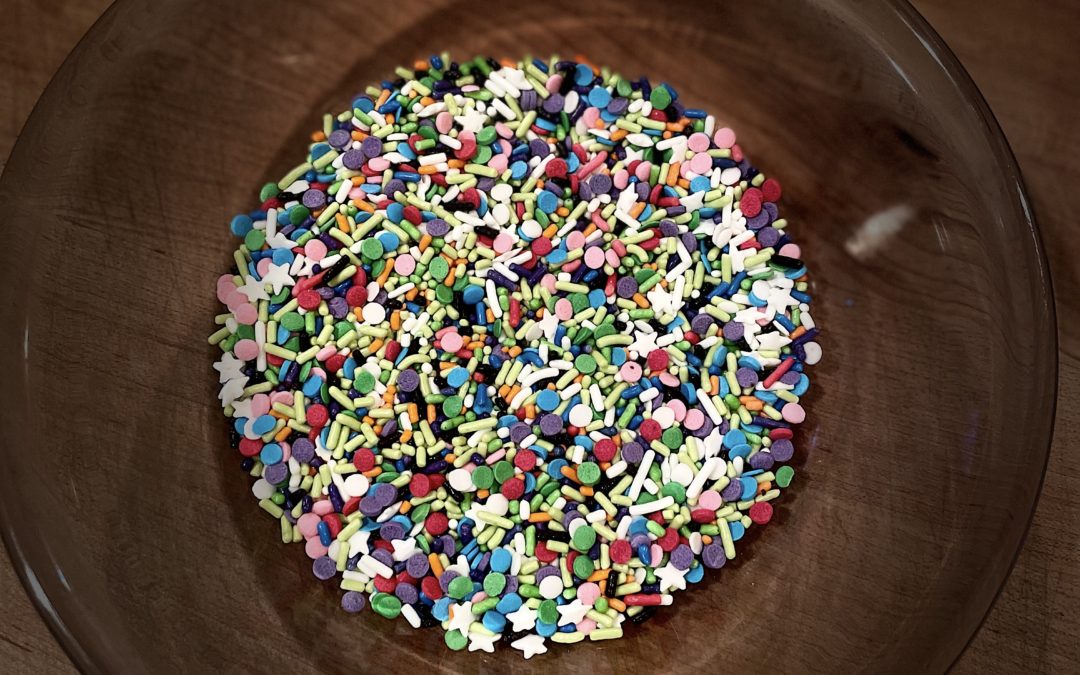
Sprinkles

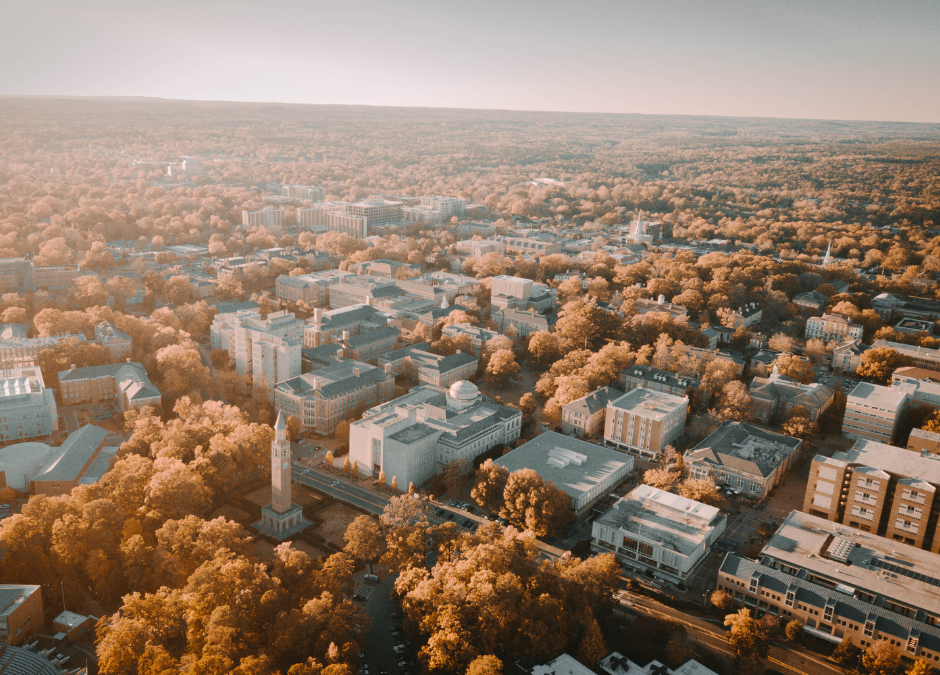
After moving back to the U.S. following two years abroad in Spain, followed by two years of teaching Spanish at my alma mater as a temporary lecturer, I decided to combine my loves of Spanish, teaching, and writing to pursue a Ph.D. in Hispanic Literature. My end goal was to land a permanent university teaching job where I could teach, research, and write about the topics I loved most.
At the end of year 4 of 5 of my program, I was ABD – All But Dissertation. I was also newly married to my husband, who had quit his job and moved across the country to be with me while I worked toward finishing my degree. A few months later he was accepted into medical school – across the country.
By working my ass off and also a bit of luck, I managed to win a prestigious fellowship from the university that enabled (and required) me to write full-time for one year to complete my dissertation. I moved to another state with my husband and while he started medical school, I researched, wrote, and edited 8-12 hours a day. I flew back and forth to North Carolina once every four to six weeks to meet with my advisor, use library resources, and carry books back and forth in an extra suitcase.
As I got closer to finishing my dissertation, I spent hours writing personal statements, teaching philosophies, and syllabuses for courses I could potentially (but would probably never) teach, and filled out academic job applications. I had a great resume, except that I had not yet published an article. I had papers and chapters of my dissertation ready to submit to journals and was hopeful that an “accepted with revisions” might suffice by the time I got an interview.
Scrolling through the job postings, I had to make some significant decisions: Where was I willing to apply? Would I move anywhere for a position even though my husband was firmly rooted in his medical school’s city for the next four years? Or, would I only apply to schools near where we already lived? Would I consider applying to schools that had a direct flight to wherever my husband lived? Even if I did, if in four years he was matched to a residency in another city or state, would I leave that job to move with him (again)?
These were excruciating decisions to make after having invested so much time and so much of myself into the Ph.D. program. Spanish language and literature was my first love, and I had finally reached the end of five years of coursework, comprehensive exams, domestic and international research, writing, and editing. But I had also found the love of my life, and gotten married. We had decided to put off starting a family while I finished my degree and he began his medical training. But now that I was finally close to the finish line, I was ready to make choices that fit my whole life, not just the professional aspects of it.
In the end, I applied to every academic job at a university or community college within a few hours of our city, as well as to schools in other cities in Texas, and even some in cities that were a direct Southwest flight from home. I was hopeful that somehow I could have it all, at the same time, and that my academic and professional dreams would coincide with my personal ones.
I did not get a single interview.
This is, unfortunately, common in the academic humanities world. I do have several friends that got amazing tenure-track jobs the first go-round and I am so proud of them and love to follow their work. But it’s not uncommon to have to enter the job market two, three, or even four or more years to find just a one-year visiting position. People often linger at their home institutions as adjunct or temporary faculty, so that they can maybe publish a bit more and stay in the academic ballgame. One of the cruelest things about academic humanities jobs is that once you get a non-academic job, it is very difficult to get an academic job in your field. Generally speaking, it is not possible to “do something else for a while and try again later,” because you will have lost touch with ongoing research and teaching publications, resources, and methodologies in your field.
At the end of my fifth year of doctoral studies, I defended my dissertation and received a unanimous pass from my committee. Since I did not have an academic job lined up, my committee strongly suggested that I not graduate yet, stick around for another year (across the country from my husband, remember), tinker with the dissertation a little more, get a publication or two under my belt, and reapply to jobs the next cycle. They were looking out for my best professional interests and they believed in my potential. I knew they were right. I had also come to the crushing realization that my husband and I had, unfortunately, both chosen careers that were geographically limited – in academia, you go where there is a job, any job; and in medicine, you go to whatever medical school accepts you, and my husband’s two options were in Texas. My program was finished, and his four years were just beginning. I didn’t want to leave behind my new husband and the other things I wanted in life with him.
No, I insisted to my committee, one by one, in meetings and phone calls with each one. I did not want to stick around. I was ready to be done. I wanted to do my revisions and move on. I would find something else. I had no idea what, but something. I knew that what I was doing was academic suicide. It was, quite literally, the death of a dream. But it had become clear to me that at this exact juncture of my life, I could not have it all at the same time, and I chose to leave academia behind to be with my husband while he was at the very beginning of his own professional dream.
Making the choice to look for what is called an “alt-ac” position felt like the unraveling of my identity as a scholar. I was grieving, frustrated, resentful, angry, depressed…you name it, I felt it. Desperate for some encouragement, I scoured the internet to try to find stories of other humanities academics, in particular from world languages and literatures, that had happily and successfully left academia for one reason or another, and I found virtually nothing. There was no one, not even a stranger on the internet, to counsel me on how to do this. I felt even more devastated and alone. I might have gotten high-pass grades in most of my courses, grants, a prestigious fellowship, and a unanimous pass for my doctoral dissertation, but I felt like I had failed, and now I felt isolated in that failure.
While trying to decide what to do next and running out of time to find a job before the new academic year began, I spoke to some colleagues who had worked in independent schools and college prep academies before beginning the Ph.D. They told me a lot of things that intrigued me and some things that made me cringe, but I realized I now had no choice but to cast a wider net. I started searching local K-12 schools to see what jobs were open.
At least I could still teach what I loved, I thought; maybe even AP courses, and maybe still go to conferences and write and research in some way. I landed a job at a prestigious independent school in Houston, and thus began my alt-ac career.
Continued in Part II.

The other day, I stood whooping for beads, arms waving, with a baby on my hip, as I watched one my town’s local Mardi Gras parades march past. I reached for a juice box for my youngest, and I looked up to see float riders passing by, dressed in plague doctor masks. These masks were first used as (ineffective) protection for physicians against the plagues of the 1500s and 1600s, and later morphed into an iconic carnival costume, meant to embody death and disease.
I turned to my husband, wrangling our other kids, pointed to the float and said, “Oh my God. THAT’S CARNIVAL.”
I’m pretty sure he heard me and was like mmhmm, cool.
In the years I spent studying, reading, and writing about Early Modern Spanish literature while I completed a Ph.D., I learned about Mikhael Bakhtin (1895-1975), a literary theorist and philosopher. From the moment I saw the plague doctor masks, I couldn’t stop thinking of him and his theories. (Old habits die hard.)
Bakhtin was particularly interested in the carnivals of Medieval Europe, when traditional power structures of both church and state were inverted. Not only were revelers given a kind of sanctioned freedom for a period of time, but the established power hierarchies and the traditional order of things were open to ridicule and even re-examination. With the European Renaissance and the advent of capitalism, Bakhtin argues that the carnival spirit of society waned, but it was reborn as a literary tendency, most notably in Francois Rabelais Gargantua and Pantagruel. Like the carnivals themselves, carnivalesque literature fomented the deconstruction and re-imagination of established norms, making way for new ideas and alternate ways of seeing the world and existing in it.
Modern carnival is a time for extravagant celebrations, opulent costumes, gleeful parades, masquerade balls, and a glut of traditional food and drink that disrupt the monotonous predictability of our everyday lives. But historically, these few weeks a year of carnival are also a time for social and political parody; representations of overt sexuality, degrading acts, and vulgar language; grotesque depictions of the body and disease; and imagery of death as a joyful occasion. If you pay attention to even the quaintest of Mardi Gras parades, you are likely to catch allusions these more egregious iterations of the tradition – like I did.
Carnival is, as Bakhtin would say, the world turned upside down. Everything that is normally prohibited is celebrated, and all that is virtuous is ridiculed. Even traditional hierarchies of power are temporarily, if only superficially, abandoned, and people of all classes momentarily live as equals in a rare instance of social unification. Masks that disguise the revelers’ identity not only afford them the anonymity to partake in the debauchery and disrespect of societal norms, but they also create a sea of humanity unbound by individual identities and power structures. During carnival, we are all the same fallen creatures, no one better than the next.
While the world is turned on its head for these few weeks, there is a collective release of social, political, religious, and sexual energy, which ironically serves to eventually reinforce the established order of things. After the chaos and indulgence of carnival, order, control, and structure are welcome respites. Society recalls why it does indeed prefer the norms by which it is traditionally controlled. And everything, more or less, goes back to normal.
When viewed in the context of the Covid years, I couldn’t help but see Mardi Gras in a new light.
For one thing, Mardi Gras was cancelled in 2021, and we missed (and necessarily so) the opportunity for the brief escape and pressure release that carnival brings.
For another, most of us have been living in what feels like a continually upside down world for more than two years, but without the gluttony, costumes, and merrymaking parts. Celebrations and gatherings of all kinds have been postponed over and over again. People have been dying who were too young and healthy to die; or who had survived any number of other illnesses and conditions only to finally succumb to Covid. Experts have been labeled as heretics and frauds. The information we have gotten from the top down has been sporadic, confusing, and often contradictory, leaving us floundering for how to make decisions. Healthcare professionals, first responders, teachers, and essential workers have been asked to do more than ever and risk their lives while doing it – for the same pay and half the respect. Conspiracy theories have been widely propagated and believed. Now, we watch in disbelief and horror as the world tiptoes around and away from Putin’s desire for World War III. And instead of the shared trauma creating societal unity, we are more unequal and clawing harder for our own power than ever before.
Many people, long before Covid, lived and still live in a sort of perpetual upside down world, and as such the world we have now must not feel as foreign to them as it does to others who are fortunate enough to live more or less comfortably within the established order of things.
I imagine, though, that for all of us, carnival hits a little differently this year. We get to pretend that even in the strangest and scariest of times, we can still flip our world inside out for these weeks of festivity before Lent, pretending that we still have some modicum of control over how things happen, even if we don’t. Maybe we remember for a few days that we are not that different from all the people we make out to be monstrous. We have the opportunity to connect with other humans over our fallenness. We find, I hope, some comfort in the recognizance of our shared vulnerability, our common primal needs and instincts, our sins (whatever we believe those to be), and yes, even our goodness. Maybe most of all, we are reminded that when everything is so upside down all the time, we can choose – as we do during carnival – to face life with a tenacious determination to play, create, re-think, re-imagine, and find joy and connection, no matter our literal or metaphorical distance from one another.
Carnival is still for reveling, celebrating, releasing, losing yourself, forgetting the rules, indulging, feeling your feelings, and rediscovering your gut instincts. Maybe even for remembering why you love people. And when it’s over, the normal order returns, as it always does, even if little by little it gets modified or torn down in places – but it’s us who don’t have to come back the same.

I’ve been writing since, well, I could write. In elementary school, I wrote a book of poems about everything from penguins, to why I hated school. They were cute and pithy and terrible and by God I made those verses rhyme.
In third grade, we got to write a story, illustrate it, and “publish” it in hardback form. I reveled in the process. I remember trying to write a super dramatic story that would make the reader cry. I was, as you might imagine, unsuccessful. I was nine.
In middle school and high school, the writing assignments were always my favorites. AP English was my happy place. I still remember the names of my favorite English teachers: Kahoutek, Marsh, Berner. To this day I am in awe of their ability to tell the story of a story, to make a bunch of hormonal teenagers believe literature had something to say to them, to cry while they watched The Outsiders or Braveheart for the millionth time to show us what symbolism meant, while also never, ever taking any shit.
In college, I loved my Great Texts and Spanish courses and was an editor and contributor to the school literary magazine. A master’s degree in Hispanic Linguistics and Literature led to more reading and writing, this time exclusively in Spanish. A Ph.D. in Hispanic Literature allowed me to spend five dirt-poor, glorious years teaching, reading, researching, and yes, writing. For my comprehensive exams, after passing the oral exam, I wrote more than 40 pages in 48 hours. It was exhilarating. A dissertation completion fellowship helped me write my dissertation in a little over a year because I was able to write full time without having to teach. I researched and wrote at home for anywhere from 2-14 hours a day for an entire year.
After leaving academia, I kind of stopped writing. Professionally, I began to focus more on teaching, tutoring, and editing, and writing my own ideas fell by the wayside. Coupled with the birth of three children and my husband’s medical training, I eventually stopped writing at all.
In 2018-2019, I made a decision to make time for things I enjoyed, which led me to think about writing again. It still felt kind of selfish, or silly, or both. I hadn’t written just for the sake of writing since I was a child – why should I start again now?
In an effort to “do it right,” I reached out to some English teacher colleagues of mine for advice. What books should I read? What advice did they have? One said to start writing every day, and the other suggested reading The Artist’s Way. Both suggestions turned out to be excellent advice.
Around the same time, my parents sold my childhood home and I found three documents from childhood that gave me the confidence boost I needed to write:
1. An entry in a first-grade classroom memory book that said “I want to be a teacher.” I had, indeed, always wanted to be a teacher. And I became one. And I loved it. Wow, I thought. Maybe I did know myself back then.
2. A third grade “about me” page where I answered the prompt “When I grow up I plan to…” with “be an author who writes childrens [sic] books.” Hmm. I wanted to be an author too?
3. A self-created Time magazine cover from some unknown date in elementary school with a self portrait, my first and last name, and the word “Writer” next to it. Ok, ok, I thought. I’ll start writing again.
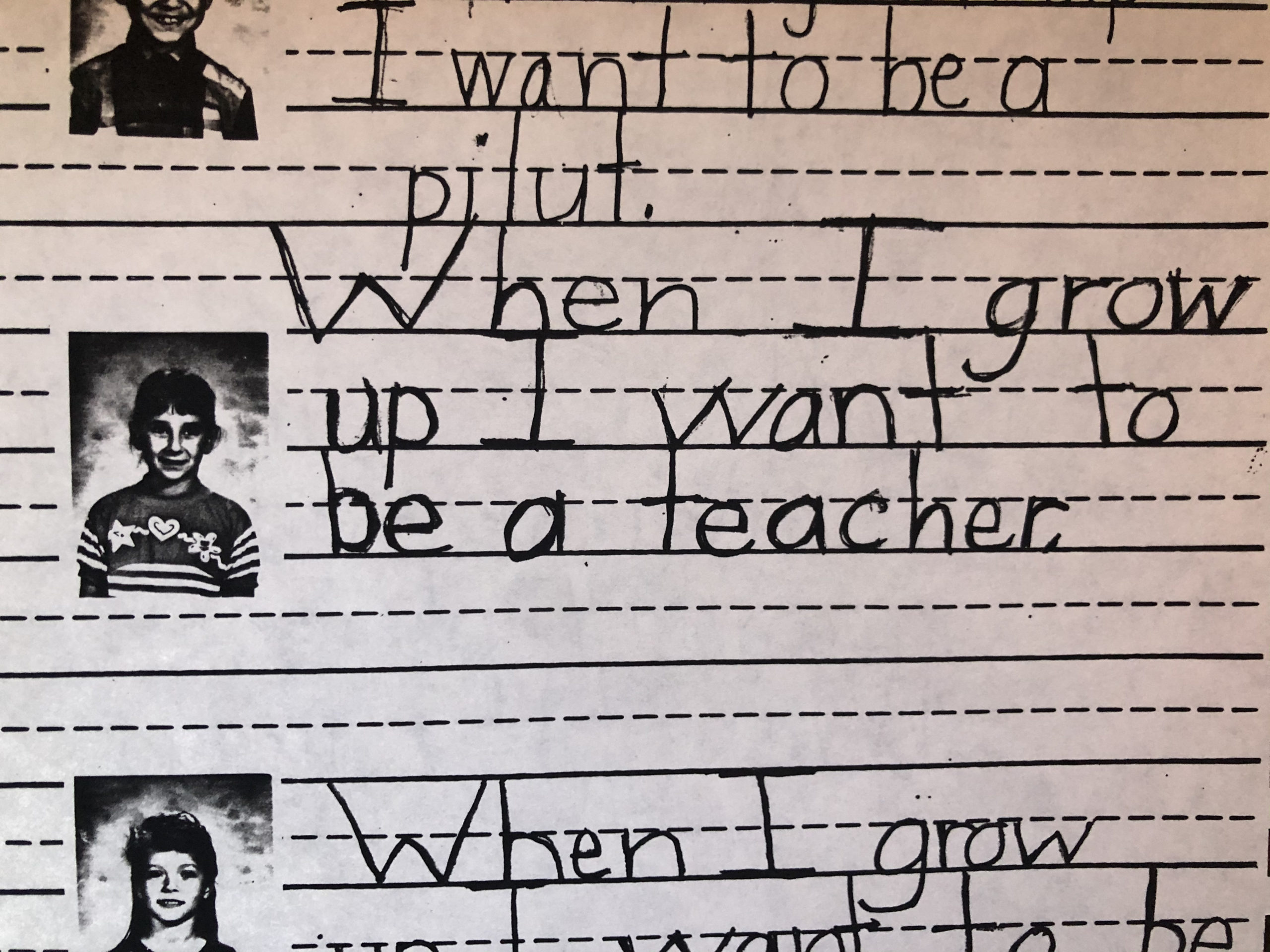
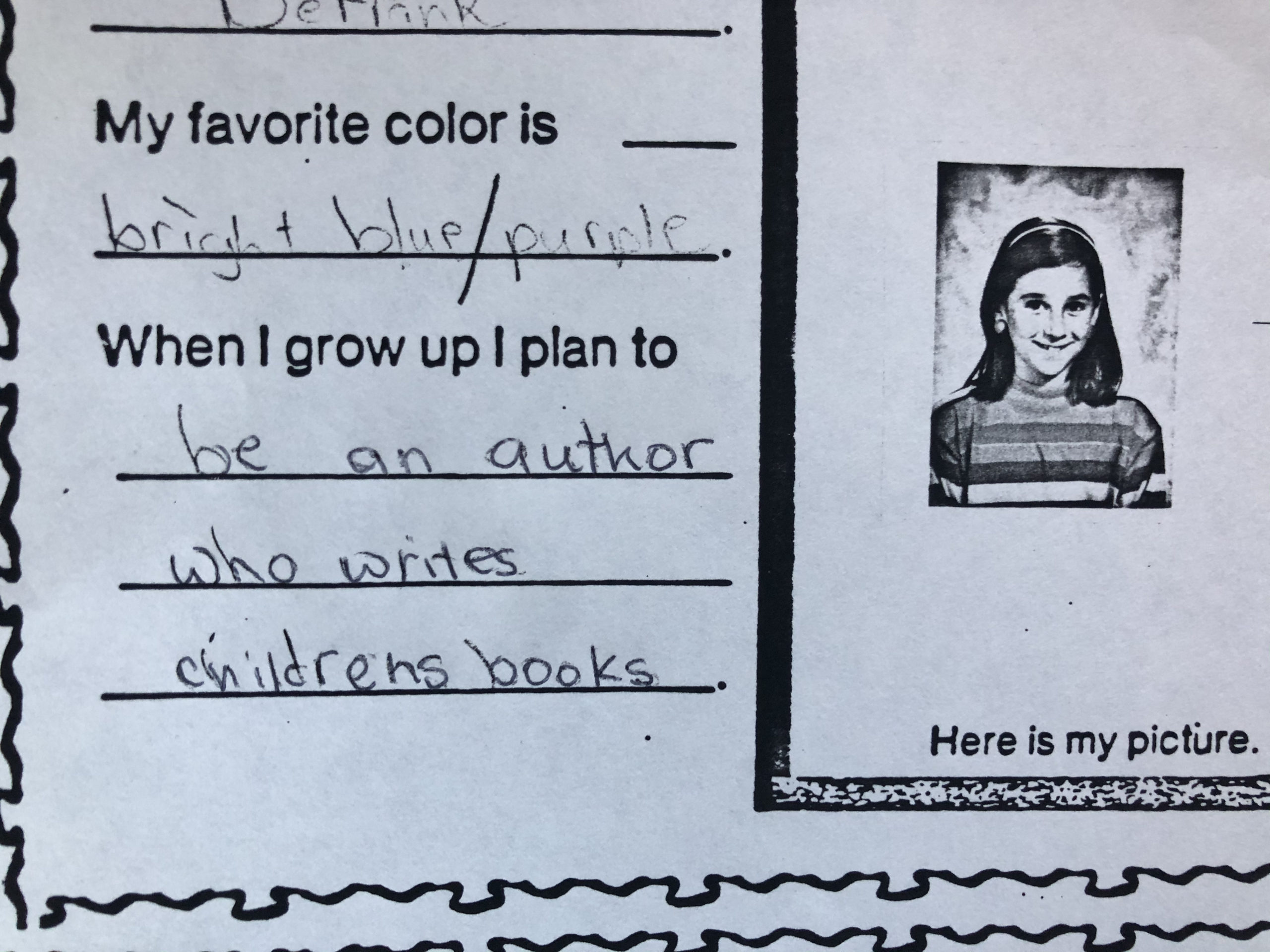
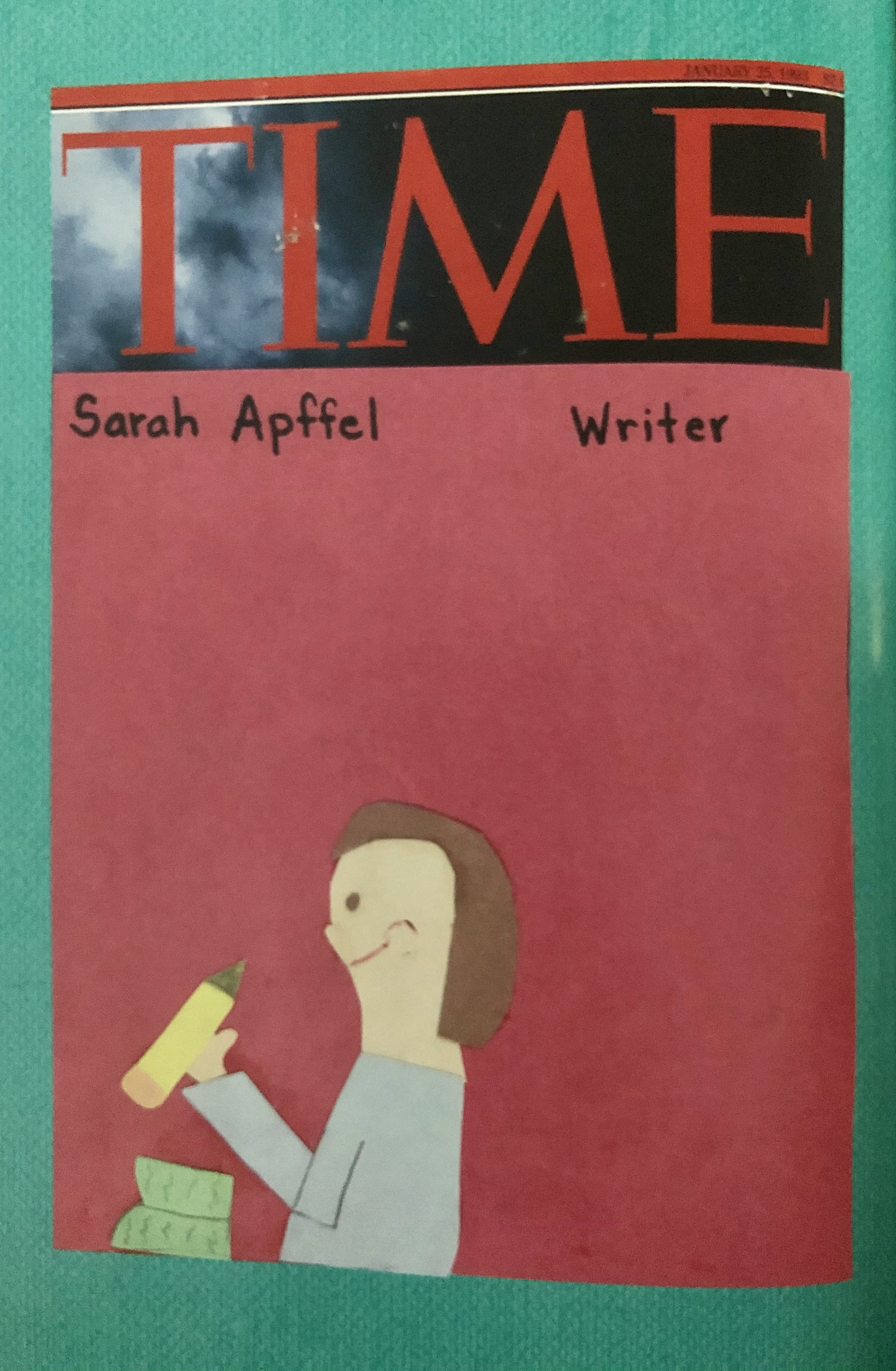
Ok, let’s be honest. I do not feel like a “real writer,” I may never be a published author, and I will most certainly never be on the cover of Time.
But finding these things did remind me of who I was, and who I have always been. So I decided I owed it to myself honor my true Self and, as Julia Cameron would say, my Inner Artist, and write.
So for more than a year, I wrote. Morning pages, journal entries, lists, emails, reflections, notes in my phone while rocking and breastfeeding babies, attempts at poetry in English and in Spanish. Some days I started to go back and edit, cleaning up language, syntax, redundancies, and more. This was the real work of writing, the returning to the draft to pick it apart, or polish it, or reimagine it.
For another year, when the Covid pandemic hit and began to drag on, I did a little less writing, and a little more revision and editing. And I bought myself a domain name, thinking that perhaps one day I would share my writing there. And for a year, I taught myself WordPress and Divi, and built myself a blog website.
Like most writers, I’ve been terrified to share my writing. It was difficult enough to get started and create something. Share it with the world? OH GOD NO. This stuff stays right here with me forever until I die.
So why did I decide to share, after two years of writing, beginning to revise, and building myself a website?
1. For motivation to keep writing and editing.
2. Because I read somewhere that writing was never meant to be one-sided; it is a conversation between the writer and the reader. Not everything you write needs a reader, but maybe some of it should have one.
3. To learn, grow, and improve as a writer and a creative being.
4. When I was lost and trying to figure out my life, reading other people’s stories on the internet, even if they didn’t look exactly like mine, helped me. So maybe something I write could help someone, too.
I am not going to post regularly, necessarily. Well, I might post about it when I have shared a new essay or recipe or something. But I am genuinely not interested in promoting this blog, or where I fall on Google hits, or getting followers, or anything of the sort. It’s simply a writing home. If you read something that speaks to you or that you hate and you think you could help me make it better, I would love to hear those things. Other than that, this is just me being brave and vulnerable and sharing my writing with friends, family, and maybe a poor unsuspecting stranger who trips over this site while searching for something else. Thanks for reading.

My husband is currently finishing year 8 out of 9 years of medical training, and while HE is the resident physician, to an extent I feel like “we” – him, me, and our children – are all on this medical training journey together. When the residency years have me at my wit’s end due to the long hours spent solo-parenting, call nights, the meager bank account, the anxiety around one big exam after another, or any other number of stressors that come with residency, I like to remember the ways we are truly fortunate to be at this point in my husband’s medical career. I don’t mean forcing myself to think happily about tough times in a toxic-positivity way – residency is HARD, and there is no getting around that; I mean pausing to take stock of things to be grateful for right now and create a positive shift in my mental and emotional energy. These are the things I often come back to:
1. The residency years are full of chances to learn and grow both personally and professionally. These years are a struggle, but the struggle is often where the growth happens.
2. Residency paychecks may be meager for the number of hours worked, but they are steady.
3. Resident physicians generally have good job security during training, provided they pass all the exams and meet all the training requirements.
4. Residency does not last forever. The financial hardship, the 80+ hour work weeks, the stressful exams, the expensive applications and exam fees, having your life choices dictated by The Match – they are all temporary.
5. The end of residency means an increase in pay. This looks different for everyone, but we are fortunate to know that after a certain number of tough years, we will get a raise.
6. There will always be a job. And even if the traditional physician career path isn’t for your family, completing medical training provides so many different kinds of job opportunities. For example: medical education, healthcare consulting, medical writing, corporate physician jobs, or insurance company jobs.
7. If you put yourself out there, the medical training years can forge lifelong friendships among the trainees and their families.
8. We might not all love our medical school, residency, or fellowship cities, but medical training provides the opportunity to live in places we might not otherwise choose. New places also mean the opportunity to meet new people and have new experiences.
9. If you or your family need to receive medical care at your training hospital, you will likely be treated with a little extra care and concern, because the healthcare staff are also your coworkers and friends.
10. The hard work and sacrifices during the medical training years are all so that patients can receive the medical care they need, to improve their health or to save their lives. When he comes home late because a patient was bleeding out, or because he wanted to make sure a patient hand-off went perfectly, I take consolation that if he’s not with us, he’s doing VERY important work for others.